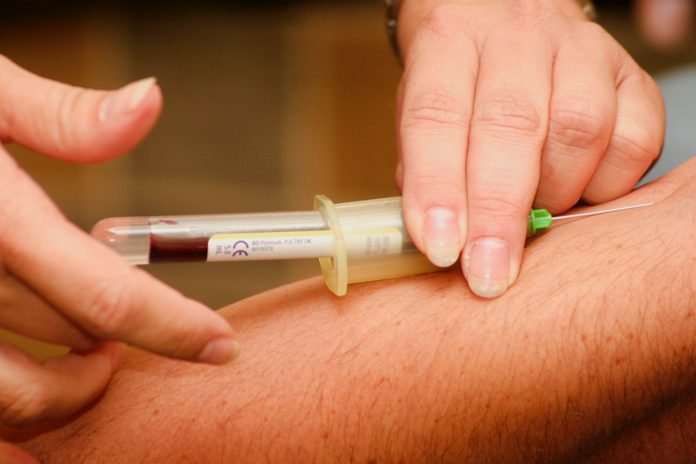
In a study from UCL, scientists found a blood test taken at the time of COVID-19 infection could predict who is most likely to develop long COVID.
The study analyzed proteins in the blood of healthcare workers infected with SARS-CoV-2, comparing them to samples from healthcare workers who had not been infected.
The team analyzed blood plasma samples from 54 health care workers who had PCR- or antibody-confirmed infection, taken every week for six weeks in spring 2020.
They compared them to samples taken over the same period from 102 health care workers who were not infected.
The researchers found a dramatic difference in levels of some of the proteins up to six weeks following infection, suggesting disruption to a number of important biological processes.
The team used an artificial intelligence (AI) algorithm and identified a “signature” in the abundance of different proteins that successfully predicted whether or not the person would go on to report persistent symptoms a year after infection.
They found abnormally high levels of 12 proteins out of the 91 studied among those infected by SARS-CoV-2, and that the degree of abnormality tracked with the severity of symptoms.
The team found that at the time of the first infection, abnormal levels of 20 proteins studied were predictive of persistent symptoms after one year.
Most of these proteins were linked to anti-coagulant (anti-clotting) and anti-inflammatory processes.
The study showed that even mild or asymptomatic COVID-19 disrupts the profile of proteins in our blood plasma.
This means that even mild COVID-19 affects normal biological processes in a dramatic way, up to at least six weeks after infection.
The researchers say that if these findings are repeated in a larger, independent group of patients, a test that could predict people’s likelihood of developing long COVID could potentially be offered alongside a polymerase chain reaction (PCR) test.
If you care about COVID, please read studies about a universal antibody therapy to fight all COVID-19 variants, and Vitamin D level could predict severity of COVID-19.
For more information about COVID, please see recent studies about people who are 5 times more likely to get COVID-19, and this face mask can capture and deactivate COVID-19 virus.
The study was conducted by Dr. Gaby Captur et al and published in eBioMedicine.
Copyright © 2022 Knowridge Science Report. All rights reserved.



